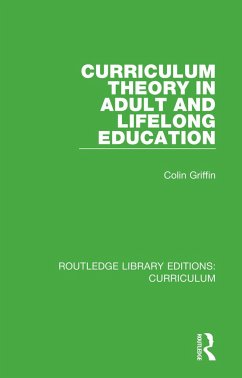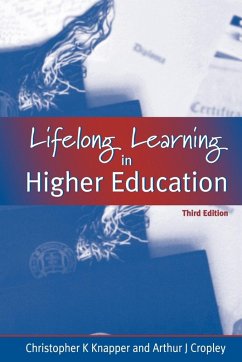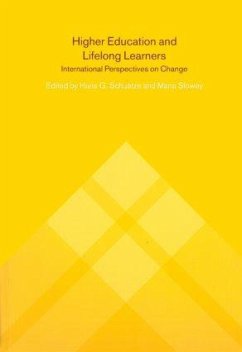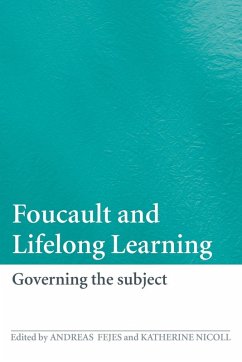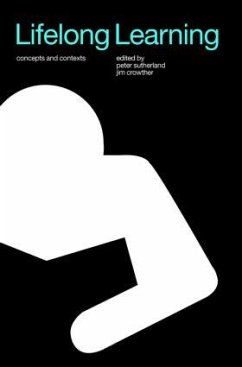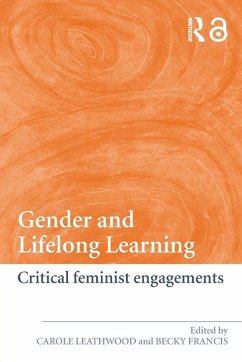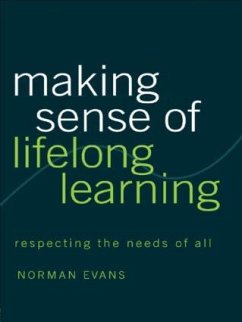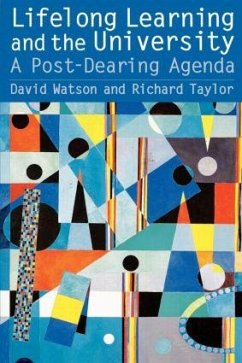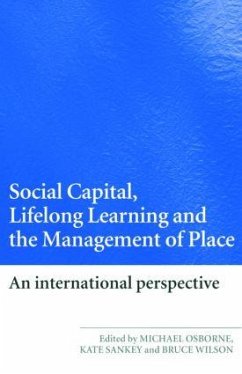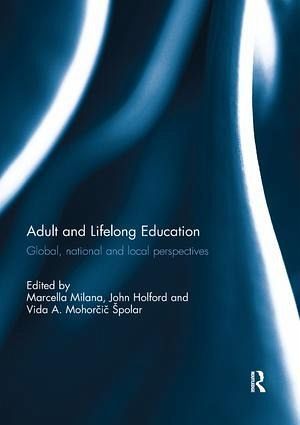
Adult and Lifelong Education
Global, national and local perspectives
Herausgeber: Milana, Marcella; Mohor¿i¿ ¿polar, Vida A.; Holford, John
Versandkostenfrei!
Versandfertig in 1-2 Wochen
57,99 €
inkl. MwSt.
Weitere Ausgaben:

PAYBACK Punkte
29 °P sammeln!
Adult and Lifelong Education explores why politicians, researchers, and practitioners involved in educating post-school young people and adults have quietly abandoned the term 'education' in favour of 'learning'. Bringing together contributions from experienced as well as younger scholars, and from Europe, North America, and Australasia, it draws on global, national, and local perspectives to reveal key features of adult education's policy environment. At the book's heart are three main concerns. First, what is the spatial reach of these developments, and what processes of fluidity and fixity ...
Adult and Lifelong Education explores why politicians, researchers, and practitioners involved in educating post-school young people and adults have quietly abandoned the term 'education' in favour of 'learning'. Bringing together contributions from experienced as well as younger scholars, and from Europe, North America, and Australasia, it draws on global, national, and local perspectives to reveal key features of adult education's policy environment. At the book's heart are three main concerns. First, what is the spatial reach of these developments, and what processes of fluidity and fixity emerge? Second, does increased state and international recognition of civil society's role in adult education and learning help to voice grass-roots learning needs for individuals and communities? Or does it create new patterns of dependency and 'domestication'? Finally, given the growing culture of monitoring, and the investment - of money, time and attention - which international organizations, national governments, and research institutes around the world are making in gathering information on people's skills and knowledge, and how they use them, what is happening when literacy, numeracy, and problem-solving abilities are tested? How is this knowledge used - and abused - in various policy environments, and who benefits? The book is an outcome of the work of the European Society for the Research on the Education of Adults (ESREA) Research Network on Policy Studies in Adult Education's inaugural conference, held at the University of Nottingham in 2012. This book was originally published as a special issue of Globalisation, Societies and Education.





